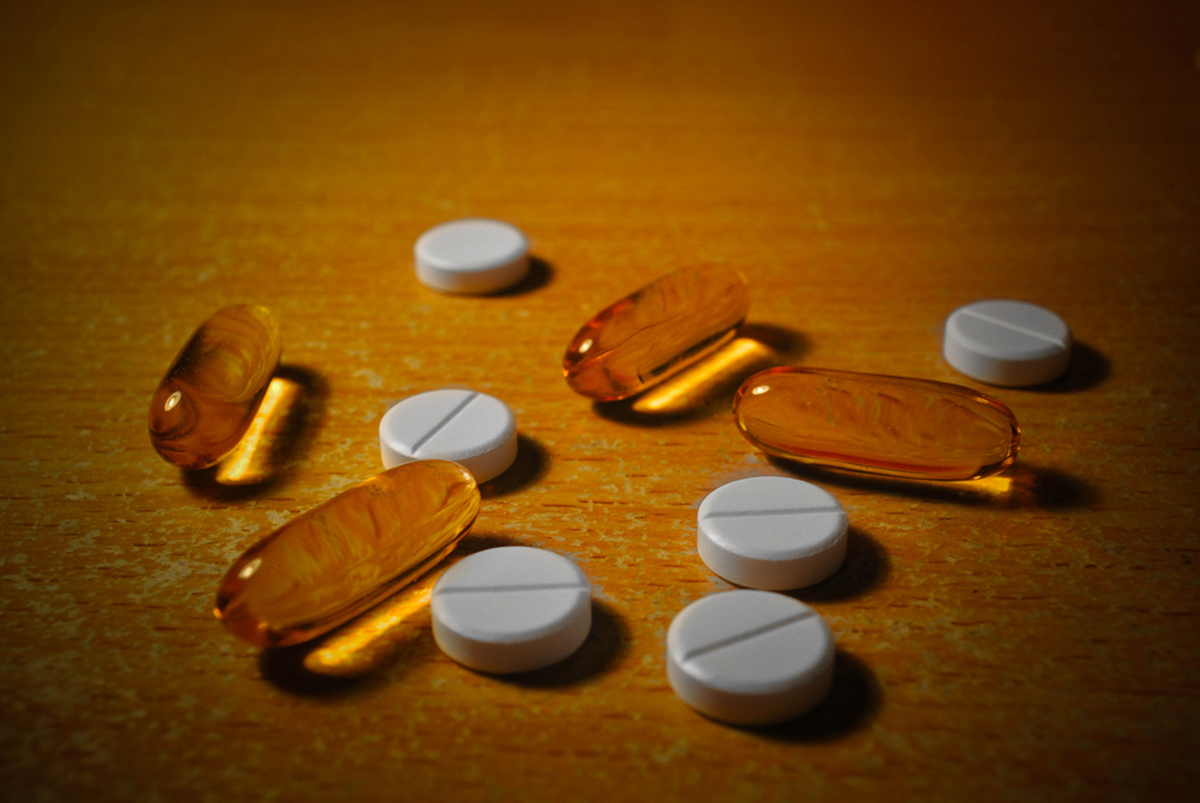Table of Contents
There are many situations in which taking too much of a vitamin or mineral can aggravate existing health problems or cause new health problems. Not everyone will experience every one of these conditions with a vitamin or mineral overdose, but problems are common enough that they are worth mentioning.
- Excesses of vitamin A are particularly dangerous to an unborn child during the first trimester of pregnancy, and they can cause dry skin, brittle nails, rashes, and liver damage in children and adults who take more than about 3,000 IU per day for any extended period. Vitamin A and beta-carotene in overdose interfere with the ability of the mitochondria to make energy for the cell; they are mitochondrial toxins in overdose, even though they are essential in smaller doses.

- Doses of vitamin B3 (niacin) that are high enough to lower cholesterol are usually also high enough to cause flushing and sometimes liver damage. Don't take more than 500 mg of niacin a day without the supervision of a doctor.
- The B vitamin biotin (vitamin B7) can accelerate the metabolism of glucose inside cells so much that the body can generate symptoms similar to those of the form of overactive thyroid known as Grave's disease.
- High levels of vitamin B12 are often associated with cancer in the elderly.
- Taking more than 500 mg of vitamin C every day changes the chemistry of the blood so that blood sugar tests (finger sticks) are inaccurate.
- Taking more than 2000 mg of vitamin C every day greatly increases the risk of kidney stones. At this level, the kidneys start removing vitamin C from the bloodstream so that most of the vitamin C you take winds up getting flushed down the toilet.
- Obese people need vitamin D because their fat steals vitamin D from circulation. Taking very high doses of vitamin D (10,000 IU a day or more for a week or more) causes changes in the way the body makes parathyroid hormone so that it takes calcium out of bone and deposits it into the linings of arteries where there are cholesterol deposits, especially when the person who takes too much vitamin D doesn't get enough vitamin K2.
- High doses of vitamin D can also cause a propensity for sunburn, easy burning with light sun exposure.
- Some, but not all, users of high-dose iodine can experience breakouts in the skin. Chronic overdoses of iodine can cause thyroid disease.
- Iron supplements can be deadly for people who have hereditary hemochromatosis (a genetic condition that causes the digestive tract to take too much iron out of food, most common in people of northern European descent) or beta-thalassemia (a genetic condition most common among people of Mediterranean, Middle Eastern, South Asian, or African descent), which often causes anemia that is treated with transfusions, which causes iron to build up in the body. Too much iron can cause tissues all over the body to "rust." There can be a distinctive brown mottling of the skin, diabetes, sexual dysfunction pf various kinds, hormone deficiencies due to accumulation of iron in the hypothalamus in the brain, cardiovascular disease, Parkinson's, dementia, and diabetes. People who have beta-thalassemia or hemochromatosis usually should not take any supplement that contains iron.
READ Taking Multivitamins Will Not Protect You From Dying Of Cancer Or Heart Disease
- Overdoses of magnesium supplements taken by mouth cause diarrhea. Magnesium given by IV in the hospital can cause a pins and needles sensation.
- Overdoses of molybdenum supplements can cause gout-like symptoms.
- High doses of selenium can cause hair loss and tissue damage.
- Overdoses of zinc supplements (more that 30 mg a day for more than 30 days) can limit the body's ability to absorb copper, which in turn results in severe muscle weakness and heart problems. If you take a zinc supplement, you also need supplemental copper, although only about one-tenth as much.
The problem with multivitamin formulas is that you don't know what is in them unless you read the label very carefully, and sometimes not even then. If you have any of the disease conditions listed above, check the label to make sure you are not getting more than the RDA (recommended daily allowance) or RDI (recommended daily intake) of any nutrient in the product unless your doctor has told you the product is OK.
- Cirillo M, Bilancio G, Cirillo C. Reversible vascular calcifications associated with hypervitaminosis D. J Nephrol. 2016 Feb. 29(1):129-31. doi: 10.1007/s40620-015-0228-7. Epub 2015 Aug 30. PMID: 26318020.
- Sesso HD, Christen WG, Bubes V, Smith JP, MacFadyen J, Schvartz M, Manson JE, Glynn RJ, Buring JE, Gaziano JM. Multivitamins in the prevention of cardiovascular disease in men: the Physicians' Health Study II randomized controlled trial. JAMA. 2012 Nov 7. 308(17):1751-60. doi: 10.1001/jama.2012.14805. PMID: 23117775.
- Photo courtesy of oliverdodd: www.flickr.com/photos/oliverdodd/3831365675/
- Photo courtesy of yumanuma: www.flickr.com/photos/yumanuma/5581382256/
- Photo courtesy of yumanuma: www.flickr.com/photos/yumanuma/5581382256/


Your thoughts on this